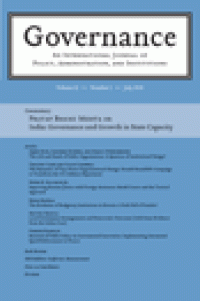
Journal Articles
Dimensions of Family Policy and Female Labor Market Participation : Analyzing Group-Specific Policy Effects
This article investigates whether and how family policy influences the probability and intensity of mothers' labor market participation. Unlike previous studies, this contribution focuses on group-specific policy effects, thereby accounting for the fact that, theoretically, women with different resources and preferences should respond differently to given policy measures. The analyses show that varying individual characteristics indeed influence the impact family policy measures have on women's individual behavior. First and foremost, family policies most strongly influence mothers with medium levels of education, for whom labor market participation tends to be “optional.” Moreover, high direct and indirect cash benefits to families, which primarily stem from traditional conservative family policy, reduce the probability of employment for women with low to medium levels of education.
Availability
No copy data
Detail Information
- Series Title
-
Governance
- Call Number
-
-
- Publisher
- Hoboken, United States : Wiley-Blackwell., 2011
- Collation
-
-
- Language
-
English
- ISBN/ISSN
-
09521895
- Classification
-
-
- Content Type
-
-
- Media Type
-
-
- Carrier Type
-
-
- Edition
-
Volume 24, Issue 2, April 2011, pages 331–357
- Subject(s)
- Specific Detail Info
-
-
- Statement of Responsibility
-
-
Other version/related
No other version available
File Attachment
Comments
You must be logged in to post a comment
 Computer Science, Information & General Works
Computer Science, Information & General Works  Philosophy & Psychology
Philosophy & Psychology  Religion
Religion  Social Sciences
Social Sciences  Language
Language  Pure Science
Pure Science  Applied Sciences
Applied Sciences  Art & Recreation
Art & Recreation  Literature
Literature  History & Geography
History & Geography